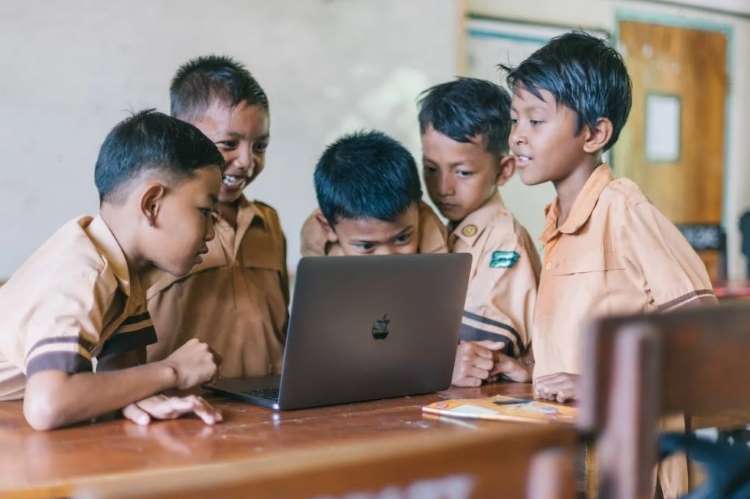
Financial literacy is a crucial life skill often overlooked in children’s education in India. It refers to the ability to effectively manage personal finances and make informed money decisions. This skill is of utmost importance for Indian children as it empowers them to become financially responsible adults who can navigate the complexities of the Indian financial landscape. People without financial literacy are more likely to face financial difficulties. The absence of financial knowledge can have a detrimental effect on individuals, families, and the society.
Imagine a young adult in India entering the workforce without a proper understanding of budgeting or saving. Even those earning a decent salary can fall into the trap of living beyond their means. They indulge in unnecessary expenses, accumulate credit card debt, and have minimal savings. Such people struggle to make ends meet and undergo constant stress over finances.
Moreover, without knowledge of crucial financial concepts such as interest rates and compounding, this individual may fall prey to predatory lending practices prevalent in India. They might resort to high-interest payday loans or get entangled in dubious investment schemes, hoping for quick financial gains. However, a lack of knowledge and skills prompts them to make poor decisions, leading to significant financial losses and debt traps.
READ I Odisha crash: Indian Railways draws flak for misplaced priorities
Another example involves individuals who cannot differentiate between legitimate financial opportunities and fraudulent schemes. Without financial literacy, they are vulnerable to scams that promise unrealistic returns or get-rich-quick schemes prevalent in India. They might invest their hard-earned money in fraudulent investment plans, only to lose their savings and face devastating consequences. Such scams can wipe out an individual’s entire life savings and severely impact their financial future.
In our third example, let’s consider a family in India struggling with mounting debt due to poor financial decisions. Without financial literacy, they may find it challenging to manage their mortgage payments, putting them at risk of foreclosure and losing their home. The stress and strain of financial difficulties can place an enormous burden on family relationships, leading to increased conflict and emotional distress.
Importance of financial literacy
The lack of financial literacy has significant intergenerational consequences. Parents who lack necessary financial knowledge may inadvertently pass on poor financial habits to their children. This leads the next generation to a cycle of financial illiteracy and sets the stage for a lifetime of financial struggle.
The repercussions of inadequate financial literacy extend beyond individual lives and impact society as a whole. Individuals who lack the skills to effectively manage their finances are more likely to rely on government assistance programmes. Supporting a large number of financially vulnerable individuals falls on taxpayers, resulting in higher taxes and reduced funding for essential public services. This affects the overall financial health of the society.
Financial literacy is an essential life skill that every child in India should acquire. Its absence can have serious consequences that can lead to a cycle of debt, financial hardships, and missed opportunities. The examples above demonstrate how the lack of financial knowledge can ruin lives, leaving individuals vulnerable to financial scams, debt traps, and a lifetime of financial struggles.
To address this issue, integrating finance as a core subject in schools across India is crucial. Financial education in the curriculum will help children develop a strong foundation in financial literacy from a young age. They will learn essential financial concepts such as budgeting, saving, investing, and managing debt which will help them make informed money decisions.
In addition to school-based financial education, various resources are available in India to help children develop their financial literacy skills. One such resource is Zerodha Junior, an initiative by Zerodha, one of India’s leading stockbrokers. Zerodha Junior aims to educate children about basic financial concepts like saving, investing, and budgeting. It provides interactive and age-appropriate learning materials to make financial education engaging for young minds. Introducing children to the world of finance through platforms like Zerodha Junior instills in them the importance of sound financial management from an early age.
Another resource for financial literacy in India is the ayu ecosystem. Ayu offers a comprehensive, structured curriculum for financial education starting from grade 1. It provides free short lessons on its site organised by age or grade, covering a range of financial literacy topics. Ayu seeks to make financial education accessible for students in India, imparting necessary knowledge and skills to make informed financial decisions.
By leveraging resources like Zerodha Junior and the ayu ecosystem, we can ensure that children in India have access to the tools and knowledge they need to develop strong financial literacy skills. These resources complement the efforts made within schools and provide additional support for children to enhance their understanding of personal finance.
Financial literacy is a critical life skill that every child should acquire. By integrating financial education into the curriculum and utilising available resources, India can empower its children to become financially responsible adults. By equipping them with the knowledge and skills to make informed money decisions, we pave the way for a financially secure future for the younger generation in India.
